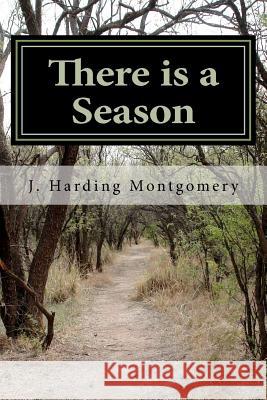There is a Season: An Odyssey into Family » książka
There is a Season: An Odyssey into Family
ISBN-13: 9781469999029 / Angielski / Miękka / 2012 / 326 str.
WINNER OF THE CANADA COUNCIL OF THE ARTS AWARD FOR RESEARCH AND NOMINATED BY AMAZON BOOKS FOR THE AMAZON/PENGUIN BREAKTHROUGH NOVEL AWARD. 'There is a Season' is an original work of historical fiction, that jumps about in space and time, taking the reader from tank battles on the bloody streets of revolution-torn 1956 Budapest, to drunken shenanigans on the back roads of 1972 Yukon Territory. It tells the story of a Hungarian family broken by the Russian occupation of Hungary, and an American family broken by the war in Vietnam. 'There is a Season' is sometimes funny, sometimes graphically violent and always entertaining. It can make you laugh, then wonder why you're laughing. Something happens on every page. Historically famous not only for the Klondike Gold Rush, the Yukon Territory has always been a place for people from around the world to 'hide-out'. In the words of one character, "this territory is safe ground for misfits, cast-offs, fuck-ups, black sheep, and every other kind of poor soul who can't or won't fit in anywhere else. It's home for the run-aways and refugees of the world." The story: The only son of Hungarian refugees from the failed revolt of 1956 breaks his parents hearts by dropping out of university and heading to the Yukon, seeking his fortune in the gold mines; a decorated Vietnam Vet breaks family tradition and honor, by shooting his naive kid brother in the foot, saving him from Vietnam but sentencing him to public shame. The Vietnam Vet then turns his back on his home and family, deserts the Marine Corps and goes as far as the road will let him, then hides out in the Yukon, making his living as a wood cutter. The unlikely pair hit the road and 'There is a Season' tells the gritty story of where they came from and why, and how, together, they mend their broken families. Takes the reader into the AVO, the hated Hungarian Secret Police, and shows how any country's civil war can divide a family. From the Author: I wrote this novel because I lived it. In 1970, like a couple of my characters, I abandoned my family's tradition of military service and became a miner in the Yukon. In the mining camps I taught Basic English to refugees from Eastern Europe, many of them veterans of the Second War and the revolts in Warsaw, Berlin, Budapest and Prague. Some, then in their late forties and early fifties, had been child slave miners and survived the death camps of Hitler and Stalin. Others were low-grade war criminals, and among them, unrepentant Nazis. Feuds were common and there were suspicious deaths. The other common thing among them was their hatred of communists. Helping me teach the European refugees were members of the latest generation of refugees to Canada: military draft dodgers and deserters from the U.S.A. As they refused to participate in the war in Vietnam, this made them, in the eyes of some of the European refugees, communist sympathizers, and targets for their hostility. As my own ancestry is American (my father left California to serve in the Canadian First Division during WW 2), many of the Europeans' looked well upon him, but poorly upon myself. I was not in Vietnam where "I belonged." I explained to them that I was Canadian and not subject to the draft. To them, this was meaningless. My father was American and served in the Canadian Army, therefore I, as a Canadian, should serve in the American Army. We never settled that."
Zawartość książki może nie spełniać oczekiwań – reklamacje nie obejmują treści, która mogła nie być redakcyjnie ani merytorycznie opracowana.











